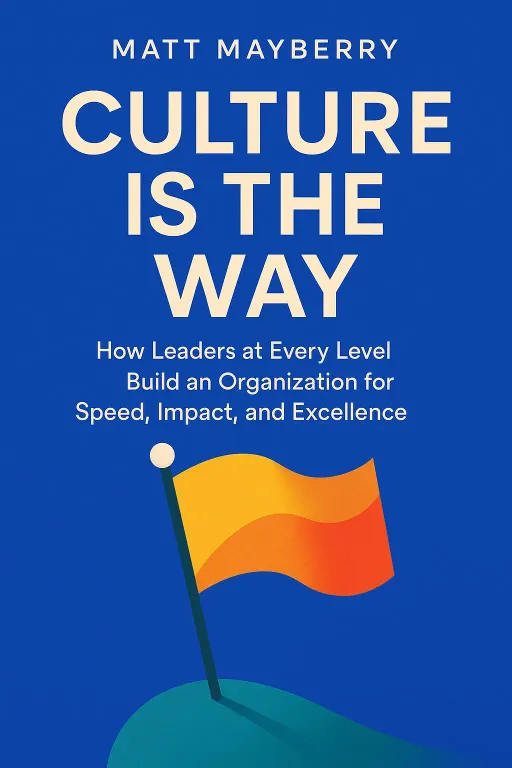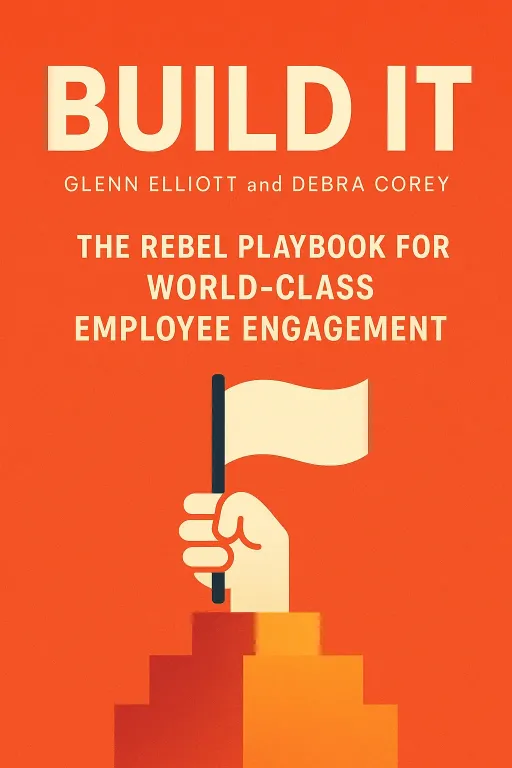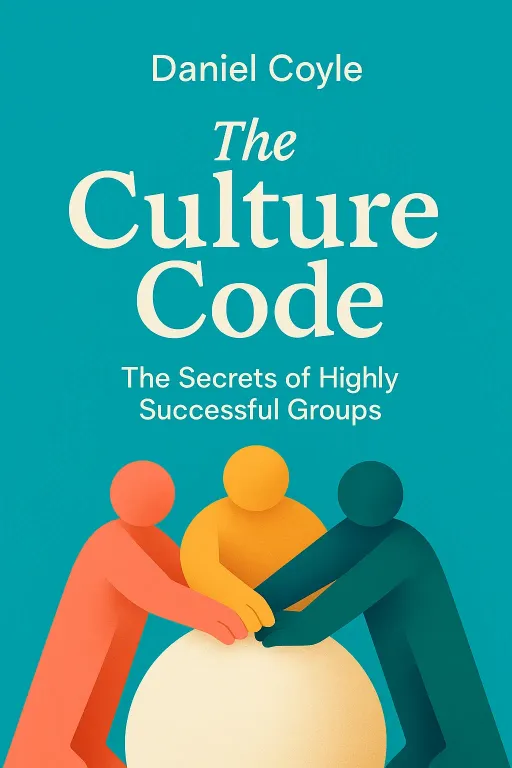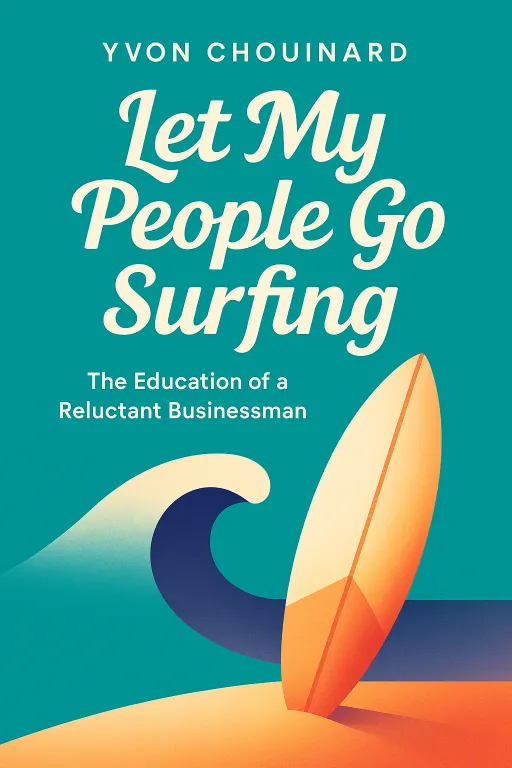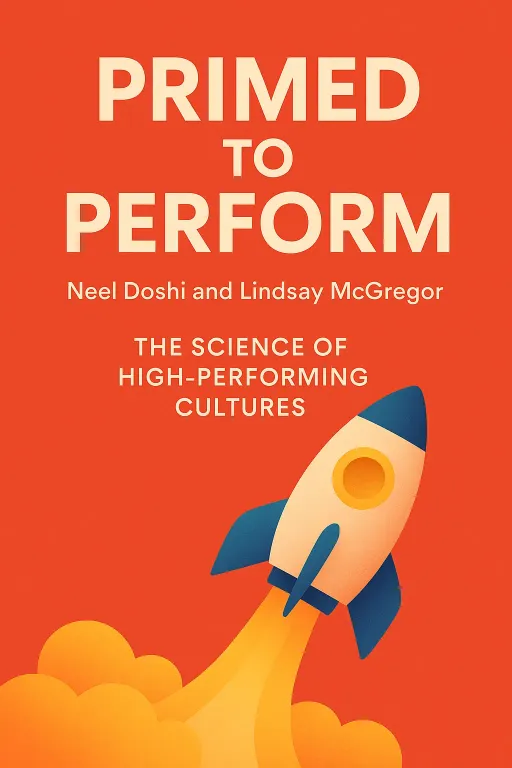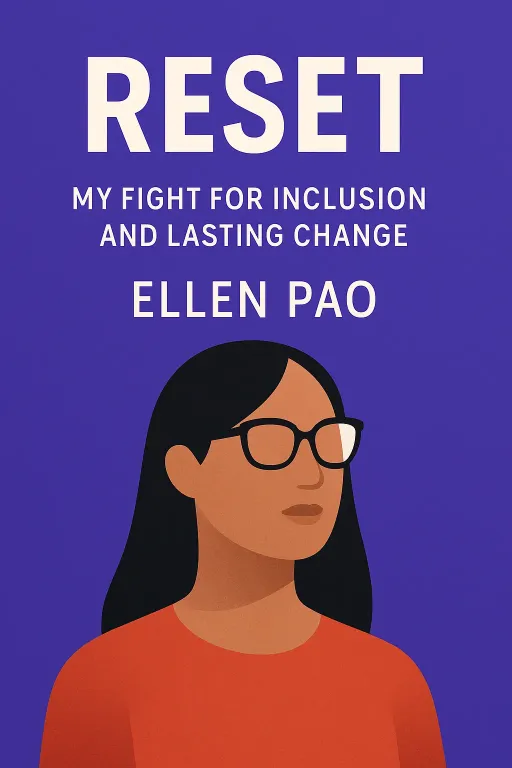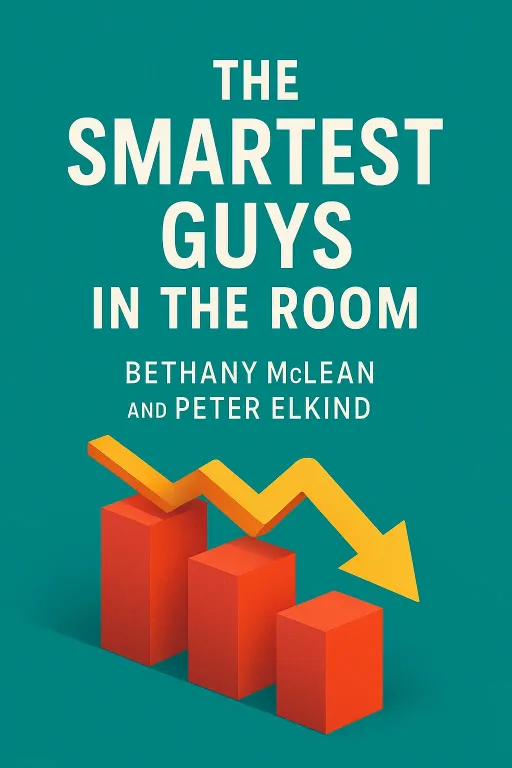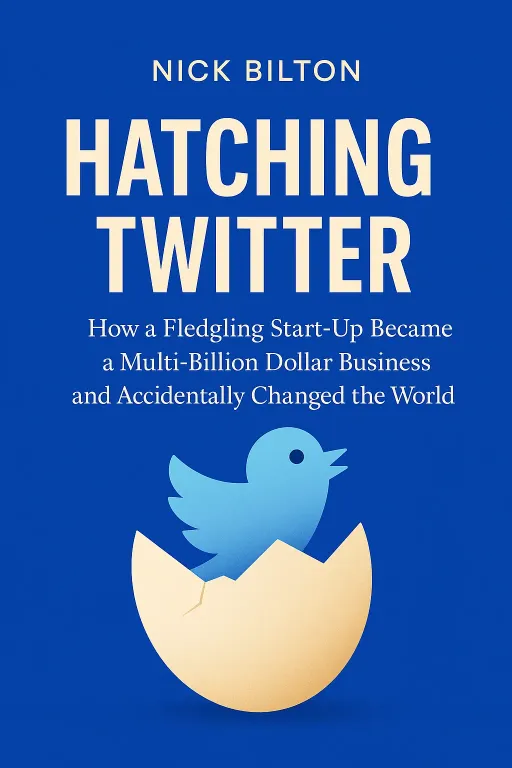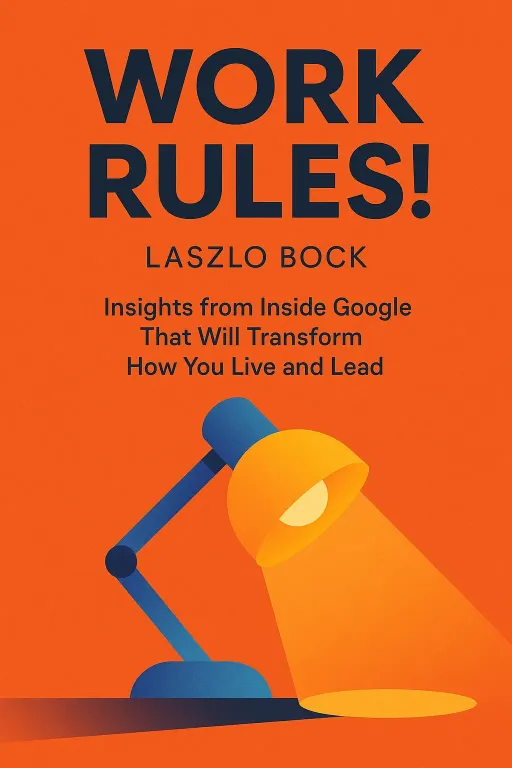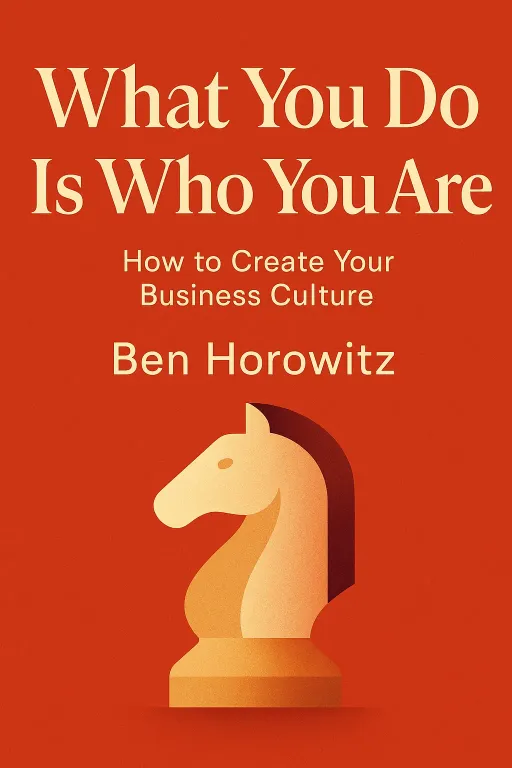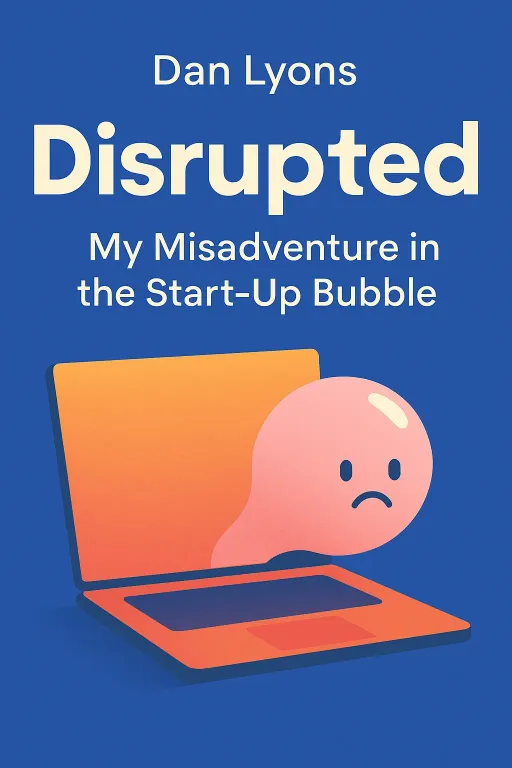
Disrupted
11 minMy Misadventure in the Start-Up Bubble
Introduction
Narrator: Imagine you are 52 years old, a seasoned journalist laid off from a prestigious magazine, and you land what seems like a lifeline: a job at a booming tech startup. You arrive on your first day, full of nervous excitement, only to find that no one is expecting you. The receptionist can’t find your name. The executives who hired you are nowhere to be found. You are left to wait on a bright orange couch, observing an office that feels more like a college dorm, complete with a candy wall, a nap room, and employees who are all half your age. Eventually, a young man named Zack gives you a tour, and just as you begin to think he’s a helpful intern, he reveals that he is, in fact, your new manager. This jarring, disorienting experience is just the beginning of the journey chronicled in Dan Lyons's memoir, Disrupted: My Misadventure in the Start-Up Bubble, a book that peels back the curtain on the absurd, often-toxic reality of Silicon Valley culture.
The Seduction of the Tech Bubble
Key Insight 1
Narrator: Dan Lyons’s journey into the tech world began not with ambition, but with desperation. After being unceremoniously fired from Newsweek in 2012, he found himself a self-described "Beached White Male"—an older, experienced professional suddenly irrelevant in a changing economy. The fear was palpable, especially after his wife had also recently left her job. This anxiety was the perfect catalyst for the siren song of the tech industry.
While working a temporary job for a tech blog in San Francisco, Lyons had a pivotal conversation with an investment banker friend named Tad. At a trendy restaurant, surrounded by the exuberant, free-spending youth of the new tech boom, Tad laid out the reality of the situation. He explained that a massive wealth transfer was happening, and smart people were getting in on it. He used a simple, cynical analogy: "When the ducks quack, feed them." In the nineties, investors wanted dot-coms, so Wall Street gave them dot-coms. Now, they wanted social, mobile, and cloud startups, and the job was to give them what they wanted, regardless of the underlying value. For Lyons, this was an epiphany. He realized he was on the wrong side of the equation, merely writing about the gold rush instead of panning for gold himself. This conversation solidified his decision: he would leave journalism and join a startup, betting on a big IPO to secure his family's future.
The Happy!! Awesome!! Start-Up Cult
Key Insight 2
Narrator: When Lyons joined HubSpot, he quickly discovered that the company culture was less a professional environment and more a "Happy!! Awesome!! Start-Up Cult." The indoctrination began immediately. New hires were subjected to training sessions that felt like pep rallies, filled with inspirational stories about how HubSpot’s software was not just a product but a revolutionary movement that "changes people's lives." This quasi-religious fervor was reinforced by a unique internal language called "HubSpeak," where firings were called "graduations" and employees were encouraged to embody "HEART" (Humble, Effective, Adaptable, Remarkable, Transparent).
The culture’s strangeness reached a peak with the introduction of Molly, a teddy bear that co-founder Dharmesh Shah began bringing to meetings. Molly was meant to be a stand-in for the customer, a physical reminder to always "solve for the customer." While presented as an innovative management technique, Lyons saw it as a bizarre, cult-like ritual. The fact that employees praised the idea without a hint of irony only deepened his sense of alienation. He felt like he was taking crazy pills, unable to understand how his colleagues could so readily accept practices that seemed utterly absurd. This teddy bear became a symbol of the uncritical, groupthink mentality that permeated HubSpot.
The Disconnect Between Hype and Reality
Key Insight 3
Narrator: HubSpot’s public image was built on the concept of "inbound marketing," a revolutionary approach that promised to attract customers with valuable content, making traditional "outbound" methods like cold-calling obsolete. The reality inside the company, however, was starkly different. Lyons was eventually moved to a different part of the office, a noisy, high-pressure telemarketing center he dubbed the "boiler room." Here, dozens of young "Business Development Reps" (BDRs), or "spider monkeys," spent their days making hundreds of cold calls, following scripts, and facing intense pressure to meet monthly quotas. This was the engine that truly drove HubSpot’s growth, a direct contradiction of the company's own marketing gospel.
This disconnect also applied to content. Lyons, a veteran journalist, was hired to elevate the company blog. Yet, his more sophisticated articles failed to generate the desired number of sales leads. In a meeting at a California Pizza Kitchen, his manager, Wingman, told him the experiment with smarter content was over. His new directive was to "make the blog a lot more dumberer," creating basic, keyword-stuffed articles like "What is CRM?" that would appeal to their target persona, "Mary the Marketer." The primary goal was not quality or insight, but lead generation, even if it meant sacrificing intellectual integrity.
The Perils of "Culture Fit" and Ageism
Key Insight 4
Narrator: The conflict between Lyons and HubSpot's culture came to a head after CEO Brian Halligan made some controversial remarks in a New York Times interview. Halligan stated that in the tech world, "gray hair and experience are really overrated" and that HubSpot was actively building a culture to attract and retain "Gen Y'ers." Feeling personally targeted, Lyons posted a sarcastic comment on Facebook, which quickly went viral and ignited a firestorm about ageism in tech.
The incident made Lyons acutely aware of his status as the "old guy" at HubSpot. He was nicknamed "Grandpa Buzz" and subjected to tone-deaf suggestions, like writing an article titled "What It's Like Being the Token Old Guy at HubSpot." This experience illuminated a darker side of the tech industry's obsession with "culture fit." This concept, Lyons argues, often becomes a euphemism for discrimination. By hiring people who are just like them, young, predominantly white male founders create homogenous, insular environments that lack diversity of age, race, and thought. The pressure to conform to a single, youthful culture can alienate and marginalize anyone who does not fit the mold.
The Unraveling and the Humiliation
Key Insight 5
Narrator: Following the Facebook incident, Lyons's relationship with his manager, Trotsky, deteriorated into a campaign of psychological harassment. Trotsky began to micromanage and criticize his every move, from his social media activity to his progress on a new podcast project. The harassment culminated in a deeply demoralizing annual performance review. In a small glass-walled room, Trotsky gave Lyons low scores, particularly on the "HEART" metric, and delivered a crushing blow: he claimed that none of Lyons's peers were willing to provide feedback for his review. To twist the knife further, Trotsky mentioned he had contacted a former colleague of Lyons, who described him as "acerbic," presenting this information as a "gift."
This meeting was the final straw. Lyons realized the cultural gap was unbridgeable and that he was being systematically pushed out. The experience was not just a professional setback but a psychologically damaging ordeal. It exposed the toxic potential of a culture that prizes conformity and punishes dissent, where performance metrics are weaponized and personal attacks are disguised as feedback.
The Aftermath and a Disturbing Revelation
Key Insight 6
Narrator: Lyons eventually left HubSpot, but the story didn't end there. In July 2015, months after his departure, HubSpot issued a shocking press release. The company announced it had fired its Chief Marketing Officer, Mike Volpe (Cranium), for violating its Code of Business Conduct in connection with "attempts to procure a draft of a book manuscript" about the company. The VP of Content, Joe Chernov (Trotsky), had resigned before a final decision was made about his employment.
The company's handling of the crisis was a case study in what not to do. They refused to provide details, stonewalled reporters, and created the impression of a cover-up. For Lyons, this news was both a vindication and a source of terror. It confirmed his suspicions about the company's unethical underbelly and made him fear for his and his family's digital security, wondering what "really aggressive tactics" had been used to try and get his book. The incident revealed that the dysfunction at HubSpot was not just a matter of quirky culture and bad management, but something far more serious, raising profound questions about corporate governance and ethics in the tech industry.
Conclusion
Narrator: The single most important takeaway from Disrupted is the massive chasm that can exist between a company's polished public image and its messy internal reality. HubSpot sold the world a story of a "lovable," "transparent," and revolutionary workplace, but for Dan Lyons, it was a world of cult-like conformity, questionable ethics, and psychological manipulation. The book serves as a powerful cautionary tale about the modern workplace, where "culture" can be a tool for control and employees are often treated as disposable widgets in the relentless pursuit of growth.
Ultimately, Disrupted challenges us to look past the free beer and foosball tables and ask tougher questions about the companies we work for and admire. Does a "fun" culture come at the cost of fair wages and job security? And in an industry that claims to be "making the world a better place," what happens when the internal world of a company becomes a place of fear, anxiety, and disillusionment?
